
views
The recent decision by Swedish authorities to expel Chen Xuefei Axelson, a Chinese journalist, underscores the growing concerns over national security threats emanating from China’s robust network of information warfare mechanisms. Chen, a 57-year-old editor for Greenpost, has been residing in Sweden for nearly two decades. The allegations against her involve collaboration with a Chinese intelligence officer and close associations with the Chinese embassy, activities deemed by Sweden as a severe threat to its national security and democracy.

A spokesperson for the Swedish Security Service indirectly addressed the matter, stating, “The Security Services’ mission is to protect Sweden and democracy, which includes preventing non-Swedish citizens deemed as threats to Sweden’s security from residing or establishing themselves in the country.”
Chen Xuefei Axelson relocated to Sweden 20 years ago following her graduation from Liaoning University. As the editor of Greenpost, she has extensively covered news concerning the Uyghur and Tibetan diasporas globally.

This media outlet has been overtly utilised to advance China’s state narratives, to the extent that it has described Uyghurs as terrorists and a threat to global peace. This portrayal raises significant concerns regarding the role of media as a vehicle for state propaganda and its impact on international perceptions of ethnic and political conflicts. The persistent dissemination of these biased narratives through Greenpost underscores the complex role of the media in shaping public perception and foreign policy discourse, particularly in contexts where journalistic objectivity is compromised by political affiliations or loyalties to state agendas.
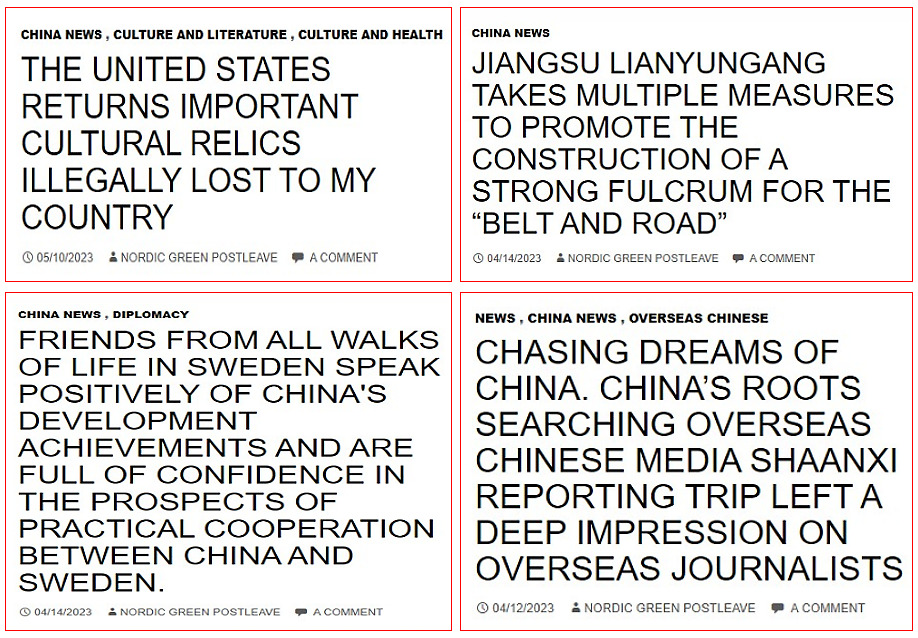
The operations of Greenpost in Sweden have been pivotal in fortifying China’s cultural and diplomatic influence. Through active cooperation with Chinese embassies and governmental agencies, Greenpost has facilitated various seminars and cultural events aimed at promoting Chinese culture. This strategy aligns with the broader objectives set forth by the Communist Party of China, which seeks to enhance China’s global presence through “soft power” cultural initiatives. This approach is not unique to Sweden but mirrors China’s tactics in other regions, including Tibet, Myanmar, and Pakistan, where cultural engagement has been employed to strengthen China’s influence and foothold. Such strategies are indicative of China’s broader geopolitical ambitions to project its influence on the global stage through cultural diplomacy.
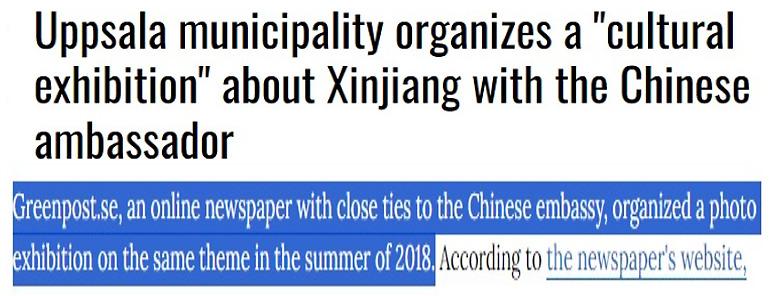
Furthermore, China has expanded its strategy of disinformation to target and malign the Uyghur and Tibetan communities globally. Greenpost has been blatantly utilised to further these state-driven narratives, notably by portraying Uyghurs as terrorists and a threat to global peace, a stance that serves to justify China’s repressive policies against these minorities. This portrayal is part of a broader disinformation campaign intended to shape international perspectives and diminish global response to the human rights abuses faced by these groups.
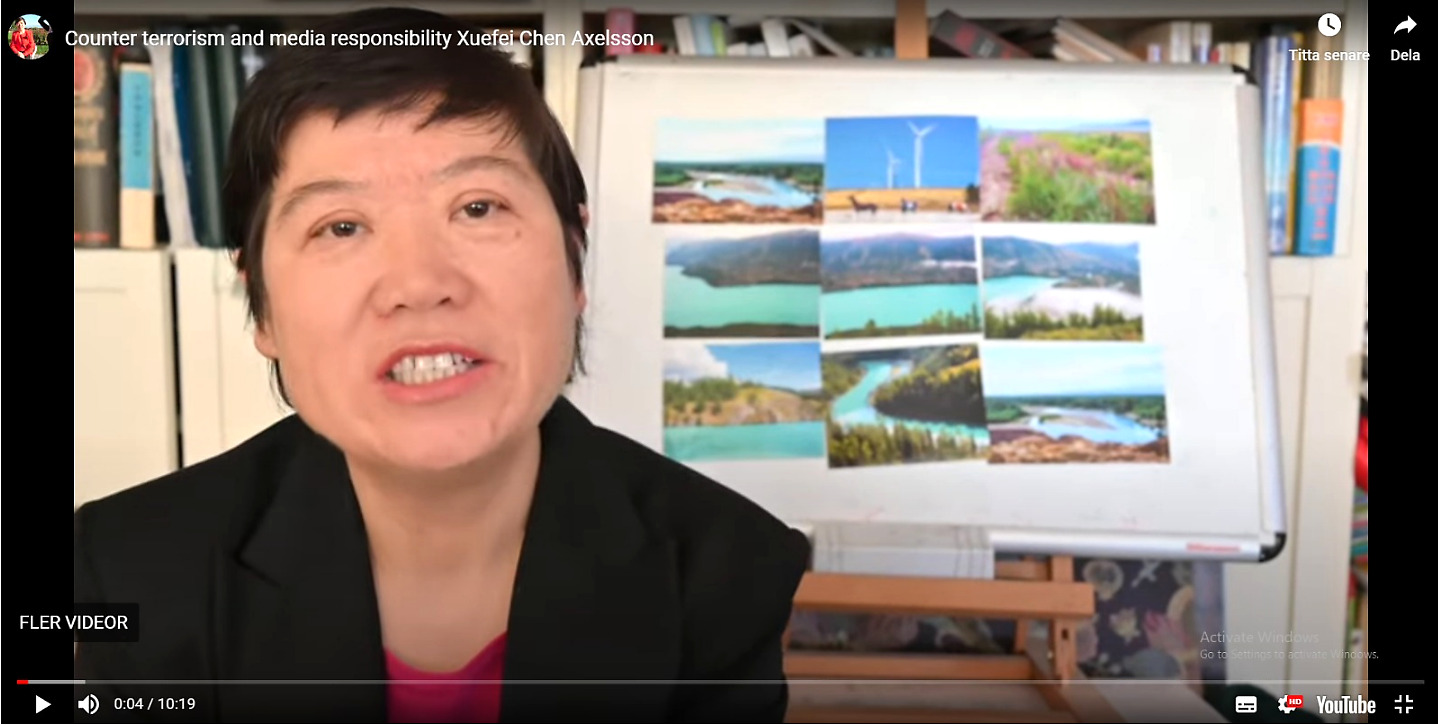
Subsequent inquiries into Chen’s activities have unveiled her connections with the Chinese embassy in Sweden, alongside affiliations with various intelligence agencies. Experts in the field assert that the involvement of the United Front Work Department (UFWD) of China is apparent in this scenario. The UFWD is recognised for its comprehensive role in conducting overseas propaganda targeting the Chinese diaspora. Additionally, it is tasked with the strategic management of foreign media acquisitions and investments. This aligns with China’s broader strategy of leveraging media and cultural outlets to extend its influence and propagate its narratives globally, underscoring the sophisticated approach China adopts in its international relations and influence operations.
China’s Disinformation Mechanism
A study conducted by the Centre for Strategic and International Studies (CSIS) reveals significant findings regarding Chinese espionage activities. Since the year 2000, US companies have initiated over 1,200 espionage cases against Chinese entities in both the US and China. The research highlights the illegal procurement of sensitive information and disinformation campaigns by Chinese intelligence personnel or their intermediaries, along with a rising trend in covert influence operations by China. The People’s Republic of China (PRC) utilises deceptive and coercive tactics, including propaganda, disinformation, and censorship, to mould the global information arena. If unchecked, this could prompt countries to prioritise Beijing’s interests, compromising their own economic and security objectives.
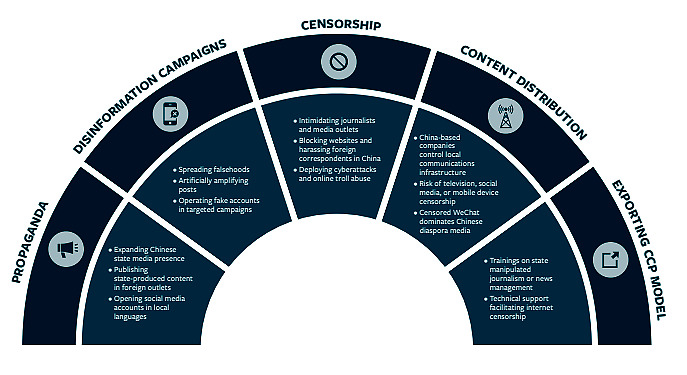
President Xi Jinping has significantly expanded the PRC’s efforts to influence the global information environment. In 2013, he directed state media to “tell China’s story well,” aiming to improve international perceptions of China. By 2021, he escalated these efforts, urging state media to enhance their propaganda and develop “precise communication methods” to effectively influence global audiences. This strategy reflects a deliberate attempt to extend China’s soft power and strategic influence by tailoring narratives to resonate with diverse international demographics.
The United Front Work Department of the Communist Party of China (CPC) is a significant agency that focuses on policy implementation and influence over groups outside the Communist Party, both within China and internationally. Its primary role includes managing relationships with various non-Communist elites, including influential members of society such as business magnates, cultural leaders, and non-mainstream political parties. The UFWD operates under a broad and often opaque mandate to strengthen the party’s influence and control by building alliances and reducing opposition.

Over the past decade, China has strategically endeavoured to establish a “new world media order” under its dominion, explicitly aimed at mitigating criticism and promoting a favourable national image on the global stage. This effort is epitomised by the tactic known as “borrowing a boat to reach the sea,” whereby Chinese state media forge partnerships with foreign local media outlets to disseminate pro-Beijing narratives and incorporate pro-Beijing commentators into these platforms. This approach not only amplifies China’s influence over international media discourse but also tactically sidesteps direct scrutiny of its motives by embedding its content within trusted local media structures, thereby reaching a broader and more diverse global audience. The UFWD has been central to China’s propaganda machinery abroad.

The extent of Beijing’s influence through its media operations in foreign nations is a subject of significant concern. Notably, regions including Taiwan, the United Kingdom, the United States, and Nigeria have experienced pronounced penetration of Chinese media efforts. These countries represent the forefront of a strategic push by China to propagate pro-China narratives within their media ecosystems. By leveraging a combination of direct media presence, partnerships with local outlets, and content-sharing agreements, China aims to enhance its soft power and assert its influence on the international stage, thereby shaping public opinion and foreign policy in these key nations.
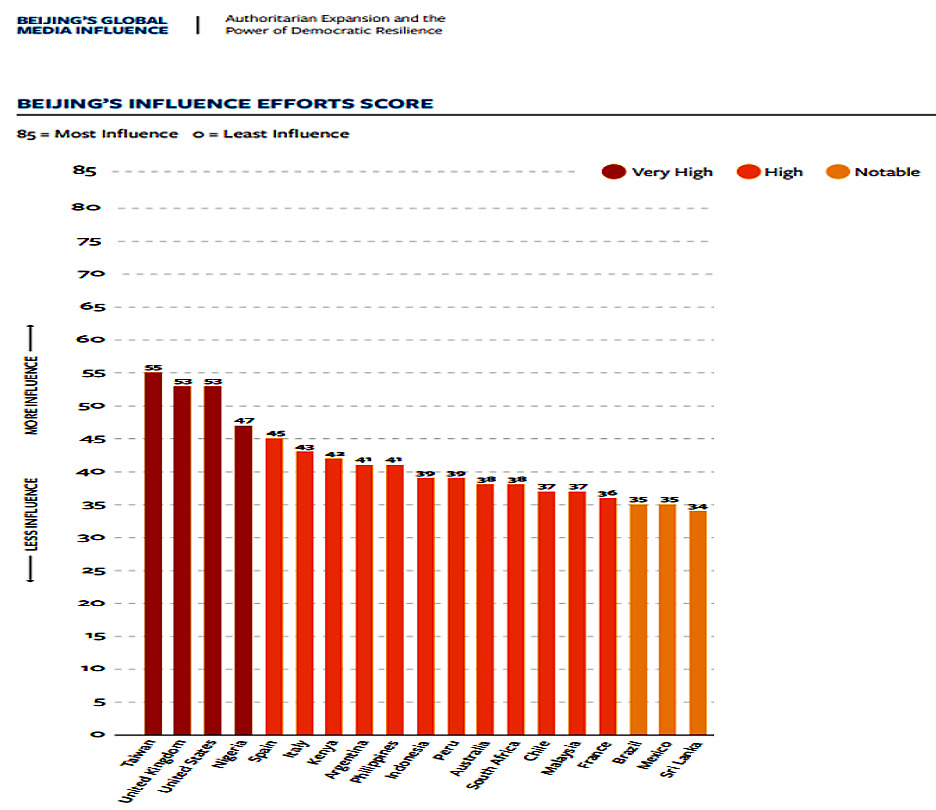
China’s approach to intelligence gathering extends beyond its formal intelligence agencies, adopting a holistic strategy that leverages the Chinese diaspora residing in foreign nations. This expansive strategy encompasses the utilisation of expatriates as both collectors and disseminators of intelligence. Central to this approach is the infiltration into critical infrastructures, including media outlets, governmental bodies, and research departments. This methodology not only diversifies China’s sources of intelligence but also integrates these efforts into a broader geopolitical strategy, thereby amplifying their impact on international relations and policy influence.
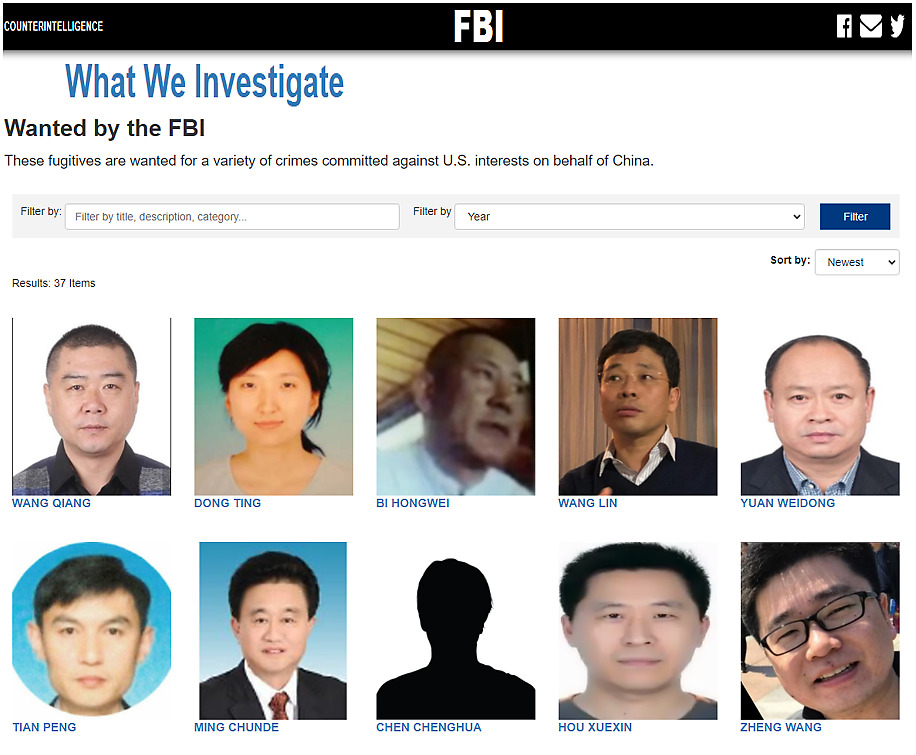
The expansive nature of China’s intelligence strategy poses significant risks for foreign nations, complicating their efforts to identify and apprehend Chinese nationals engaged in espionage. As the lines between ordinary citizens and intelligence agents blur, countries face heightened challenges in distinguishing between benign and malicious activities.
Guard Against China’s Media Espionage: India’s Imperative
Microsoft’s Threat Intelligence division has alerted about China deploying artificial intelligence to spread disinformation campaigns and manipulate upcoming elections in India. China’s strategic influence operations in India reportedly involve the utilisation of Indian media and journalists. A notable case is that of Rajeev Sharma, a journalist who has been detained under accusations of espionage on behalf of China. Sharma is facing allegations that include advocating for controversial measures such as the extradition of His Holiness the Dalai Lama to China, purportedly as a means to achieve regional peace. This example highlights the depth of likely Chinese engagement in manipulating media narratives in India.
There have been instances in the past of Chinese companies investing in India’s leading news aggregators to enhance their media reach. In 2016, a Chinese company ByteDance had invested $25 million in Dailyhunt, a multilingual news aggregator, which attracts over 330 million monthly users. However, it later divested all its stakes in 2022. In fact, in 2020, the Indian Army even banned DailyHunt for its officers and ranks over concerns about data harvesting. Another example is of NewsDog, a news aggregator app owned by Hacker Interstellar of Hong Kong, which in 2018 was striving to dominate India’s news aggregation market. However, it was banned along with 89 other Chinese apps by the Indian government in 2020 post-Galwan clashes.
Since 2016, the Chinese Public Diplomacy Association (CPDA), established by China’s Foreign Ministry in 2012 to promote its narrative, has been offering a journalism fellowship targeting journalists from India, Pakistan, Nepal, and Southeast Asian countries. These fellows typically send back reports that favour Chinese perspectives to their home organisations, which are then published as dispatches from Beijing correspondents without disclosing the Chinese government sponsorship of their fellowship.
In 2023, Delhi Police in an FIR filed under the anti-terror legislation UAPA, had implicated the NewsClick portal in a purported “larger criminal conspiracy” aimed at undermining India’s sovereignty and inciting disaffection within the nation. This allegation included the transfer of substantial funds from China, purportedly orchestrated by Neville Roy Singham, identified as an active member of the Communist Party of China. The police claim that these funds were illicitly channelled to fuel activities for disinformation campaigns detrimental to India’s national security.
China has been strategically targeting influential segments within India, including the young, tech-savvy demographic, opinion leaders, and the intelligentsia, thereby attempting to shape the nation’s future prospects. This calculated engagement requires our urgent attention due to its profound economic and strategic implications. It is imperative that India recognises and confronts this manipulation to preserve the integrity of its democratic processes and maintain its sovereignty. By actively countering Chinese propaganda, India can ensure the efficacy and dynamism of its democratic system and uphold its commitment to the welfare of its citizens, securing its status as an independent and self-governing nation.
In retrospect, the Indian government had aptly recognised the multifaceted threats posed by China, as evidenced by its proactive stance in banning hundreds of Chinese applications, signalling a strategic shift towards safeguarding national digital infrastructure. Nonetheless, the persistent and evolving nature of these threats necessitates sustained vigilance. China’s ongoing disinformation campaigns represent a perpetual challenge that demands constant monitoring and decisive action from India. This approach is crucial to counteract the sophisticated strategies employed by China, ensuring the security of India’s information environment and supporting its sovereignty in the increasingly digital global landscape.
The writer is an author and columnist and has written several books. His X handle is @ArunAnandLive. Views expressed in the above piece are personal and solely that of the author. They do not necessarily reflect News18’s views.



















Comments
0 comment